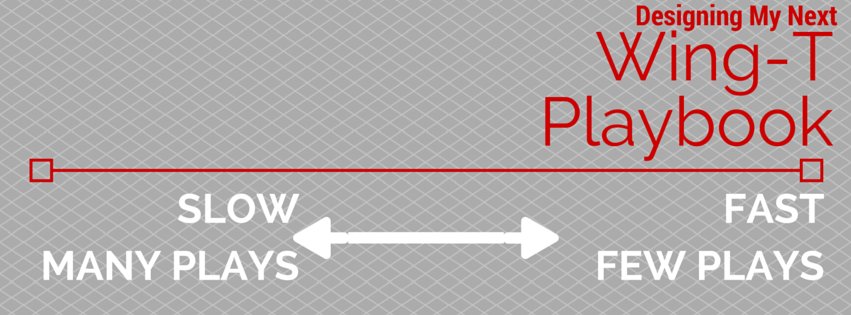Slow and Complex, or Fast and Simple?

My co-head coach Brian and I were driving together to the Portland airport today discussing the upcoming National Wing T Clinic. We've broken out detailed assignments for each of us to cover based on our interests, experiences, and responsibilities in the coming season. As we parted ways to our different flights (I'm still hanging here in the airport 3 hours later and still have 3 hours to wait until my flight), I brought up the topic of “what do we want our offense to look like in the coming season?” We will run the Wing-T of course, and are likely to mix in a lot of shotgun / pistol, but I laid out two contrasting styles. I think this offense is adaptable to both:
- A relatively small playbook that we can run at tempo (our desired tempo), presumably with simple signals into the team for no huddle execution
- A deep playbook that gives us a multitude of attack options for just about any situation, but will be difficult to run fast.
Even though we have run no huddle for a while, we've lived at the “deep and fast” end of the spectrum. We have 50-60 plays by end of season, with position-specific wrist coaches. While we are very unlikely to have any miscues on offense, the slowness of each player checking his wrist coach before or while getting to the line means we won't run plays faster than 15-20 seconds after the ball is set.
I can't help but wonder if the benefits of the deeper playbook are overshadowed by the inability to have a faster tempo. Additionally, more plays means more practice time spent trying to perfect more plays, so some will not have the reps required for solid execution.
At the other end of the spectrum, imagine a playbook with only 10-16 plays, with tons of practice repetition of each play, and an easy signaling system to call them in. We'd have to be strategic about play selection to make sure that we retain the series-based nature of the Wing-T and that we can attack every gap.
One way to make 10-16 plays turn into a larger set of plays is to incorporate packaged plays or run-pass options (RPOs). There are some plays we run that would be well suited for RPO. But will we have a QB with the poise and confidence to do this?
Anyway, this is what we will be on my mind this weekend at the clinic. I can't wait to learn from other coaches' experiences as we decide what strategy is right for us in the coming season.